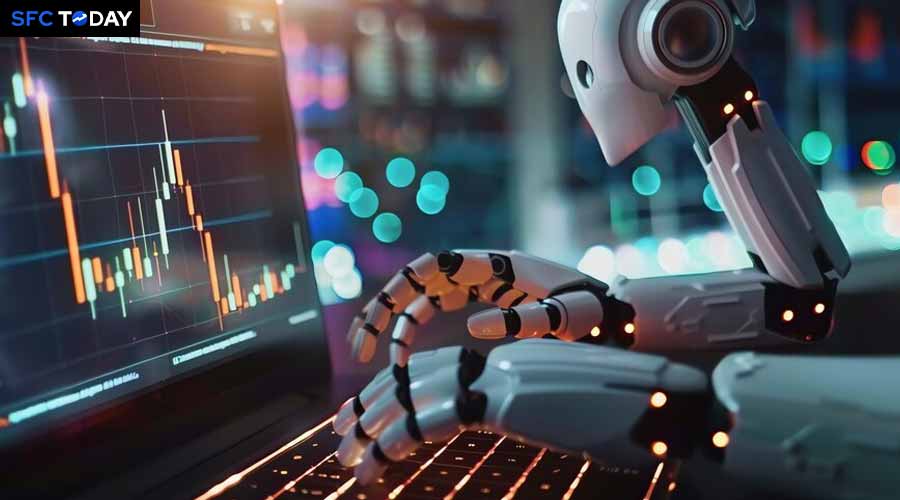Revolutionize your trading: How machine learning transforms automated stock trading
Machine learning (ML) has made profound impacts across various industries, and stock trading is a prime example of its transformative power. By harnessing sophisticated algorithms and analyzing vast datasets, ML has revolutionized how traders make decisions, optimize strategies, and potentially increase returns. This article delves into how machine learning for automated stock trading is the way to reshape the stock market.
Introduction to Machine Learning in Trading
Machine learning refers to the process of training algorithms to identify patterns and make data-driven decisions. In stock trading, ML models analyze extensive historical data, market trends, and other pertinent information to forecast future price movements and execute trades automatically. This capability allows traders to make more informed decisions and implement strategies that might be beyond human capabilities.
Types of Machine Learning Models Used
Several machine learning models are employed in automated trading, each offering unique advantages:
Supervised Learning: Specifying, how machine learning for automated stock trading, these models are trained on labeled data to predict specific outcomes. Common algorithms include linear regression, decision trees, and support vector machines. They are useful for predicting stock prices based on historical data and predefined criteria.
Unsupervised Learning: Unlike supervised learning, unsupervised models identify hidden patterns in data without predefined labels. Techniques like clustering and association algorithms help uncover relationships between different market factors and identify potential trading signals.
Reinforcement Learning: This approach in how machine learning for automated stock trading involves algorithms learning through interactions with the environment and receiving feedback. Reinforcement learning is particularly effective for developing adaptive trading strategies that respond to changing market conditions.
Applications of Machine Learning in Trading
Machine learning finds various applications in trading, enhancing different aspects of the trading process:
Algorithmic Trading: ML algorithms automate trade execution based on predefined criteria, optimizing the timing and size of trades to maximize returns. These algorithms can process vast amounts of data in real time, making split-second decisions that human traders might miss.
Sentiment Analysis: By analyzing textual data from news articles, social media, and other sources, ML models gauge market sentiment and predict its impact on stock prices. This analysis helps traders anticipate market movements driven by news and social trends.
Risk Management: Machine learning models assess the risk associated with different trading strategies and assist in portfolio diversification to mitigate potential losses. They analyze historical performance and market volatility to provide insights into risk exposure.
Data Sources and Preprocessing
The effectiveness of ML models in trading relies heavily on the quality and quantity of data. Common data sources include historical price data, financial statements, economic indicators, and alternative data like social media trends. Data preprocessing, such as normalization, feature extraction, and data augmentation, is crucial to prepare the data for model training. Properly cleaned and processed data ensures that the ML models can perform accurately and efficiently.
Developing and Backtesting Trading Strategies
Developing a successful trading strategy involves selecting suitable ML models, training them on historical data, and optimizing their parameters. Backtesting is a critical step in this process, where the strategy is tested against historical data to evaluate its performance before deploying it in live trading. This step helps identify potential issues, refine the strategy, and ensure its robustness in real-world scenarios.
Challenges and Considerations
Despite its advantages, machine learning in trading comes with challenges:
Overfitting: ML models may perform well on historical data but fail to generalize to new, unseen data. Techniques like cross-validation and regularization help mitigate overfitting by ensuring that models perform well on a variety of datasets.
Market Dynamics: Financial markets are influenced by numerous and often unpredictable factors, making them highly dynamic. ML models must be continuously updated to adapt to changing market conditions and emerging trends.
Computational Resources: Training complex ML models requires significant computational power and resources. Efficient resource management and optimization are necessary to handle the demands of large-scale data processing and model training.
Future Trends in ML for Trading
The future of machine learning in trading is promising, with several emerging trends:
Deep Learning: Advanced neural networks, such as convolutional and recurrent neural networks, are being explored for their potential to capture intricate patterns in financial data. Deep learning models offer the ability to analyze complex datasets and improve predictive accuracy.
Quantum Computing: Quantum algorithms could revolutionize ML by significantly enhancing computational speed and efficiency. This advancement could enable real-time trading with unprecedented precision and speed.
Explainable AI: There is a growing focus on developing models that provide transparent and interpretable predictions. Explainable AI aims to help traders understand the rationale behind trading decisions, increasing trust and reliability in ML-driven trading systems.
Conclusion
trading is reshaping automated stock trading by enabling more sophisticated and adaptive trading strategies. While challenges such as overfitting, market dynamics, and computational demands persist, the potential benefits of ML in optimizing trading performance and decision-making are substantial. Certainly, how machine learning for automated stock trading is helpful is a way as technology continues to advance, ML will likely play an increasingly pivotal role in the financial markets, offering new opportunities and insights for traders.







